Deaths During Transport Strike: Still reeling from shock
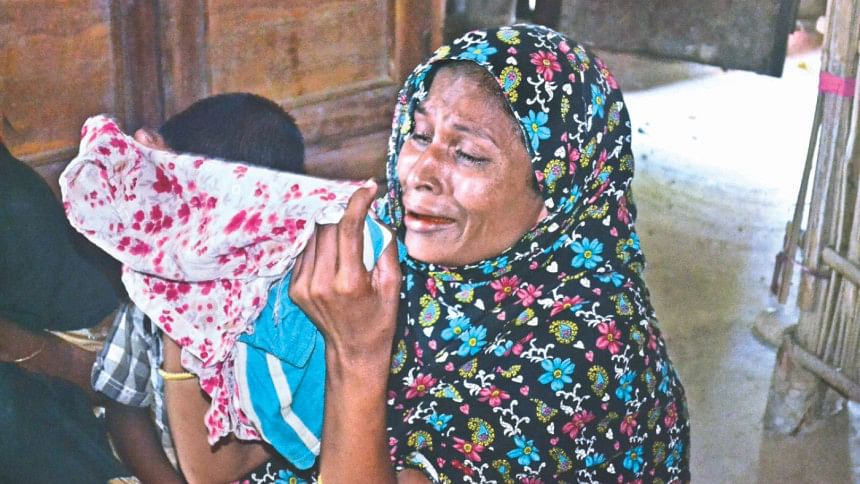
Shukria Begum, the 11-month-old daughter of Hamida Begum, was having breathing difficulties and was showing signs of diarrhoea in late October. Hamida took her to a nearby doctor at Shahbajpur Bazar of Moulvibazar's Baralekha upazila on 28 October as her condition deteriorated.
The doctor, around 2:00pm, diagnosed her with diarrhoea and pneumonia and asked Hamida to take the child to the upazila health complex immediately.
Despite the health complex being less than 15km away, this put Hamida in trouble. A 48-hour transport strike was underway and there were no forms of public transport on the roads.
“I managed an autorickshaw to take us to the hospital but the local transport workers did not let it move. Around 4:00pm, I hired a rickshaw but the workers let the air of its tyres out.
“They were laughing at us. We waited till 5:00pm and then returned home on foot. My daughter died around 7:00pm,” said a sobbing Hamida, who has two other school-going children.
Hamida's husband died a year ago and her mother-in-law, who works as a house help, is the sole breadwinner of the family.
She fears that filing a case over the matter might get her into more trouble.
Shukria is not the only child to have died during and allegedly because of the strike. Two other infants -- one in Moulvibazar and the other in Sunamganj -- died on their way to hospitals as alleged transport workers obstructed them during the two days.
The deaths triggered outrage on social media. Many were shocked that transport workers not only took away people's right to movement but also their right to access healthcare.
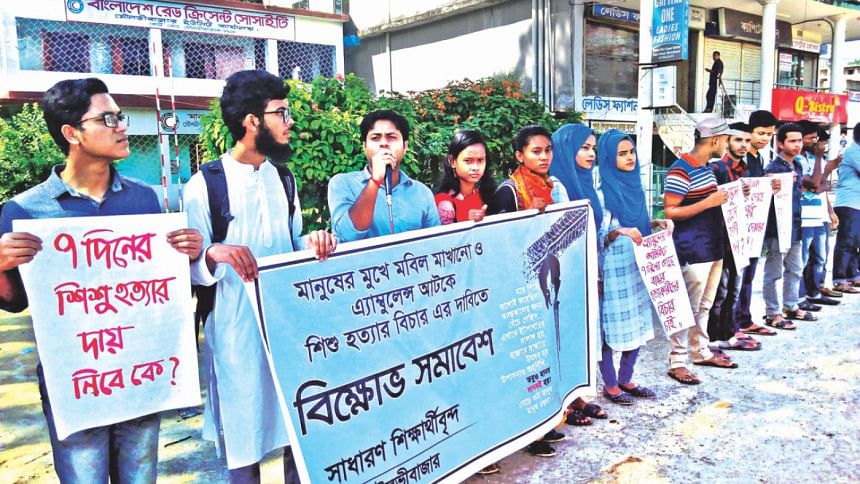
Many transport workers' leaders were quick to wash their hands of the incidents.
The families have demanded justice while investigation in one case was initiated after the family concerned filed a case.
Akbar Ali, uncle of a victim, filed a murder case with Baralekha Police Station against 160-170 unidentified people on Wednesday night.
His seven-day-old niece died in Chandgram of Moulvibazar on the first day of the strike as alleged transport workers held the ambulance carrying the girl to Sylhet MAG Osmani Medical College Hospital.
Sayera Begum, mother of the girl, is yet to recover from the shock. “They took away the ambulance key and beat up the driver,” recalled Sayera at her Ojmir village home in Baralekha.
The third victim is a two-day-old boy who reportedly died on the same day at Dakshin Sunamganj upazila in Sunamganj.
Moinul Islam, father of the baby boy, said his devastated wife had to be hospitalised.
Most leaders of Bangladesh Road Transport Workers Federation that called the strike denied that their men were behind the incidents.
Rakib Uddin Rofique, general secretary of Sylhet Road Transport Workers Union, described the strike demanding amendments to the Road Transport Act-2018 as “peaceful”.
However, Selim Ahmed Fotik, president of Bangladesh Road Transport Workers Federation (Sylhet division), has demanded punishment of the transport workers who obstructed the vehicles. He assured that his organisation would not support workers found guilty of the offences.
After a writ petition was filed with the High Court over the deaths of the three children, the court on Wednesday issued a rule upon the inspector general of police to take action against the people responsible for the deaths.
Kamrul Ahsan, deputy inspector general (Sylhet range), said the IGP's office was yet to issue an instruction following the HC directive but investigation was on in the case that has been filed by Akbar Ali.
The DIG, however, said he was not aware of the other incident reported in Baralekha. “As far as I know, the infant in Dakshin Sunamganj upazila died at home. We will take action if the family files a case.”


 For all latest news, follow The Daily Star's Google News channel.
For all latest news, follow The Daily Star's Google News channel. 

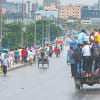
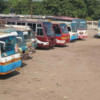

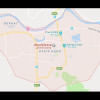
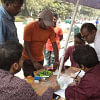


Comments